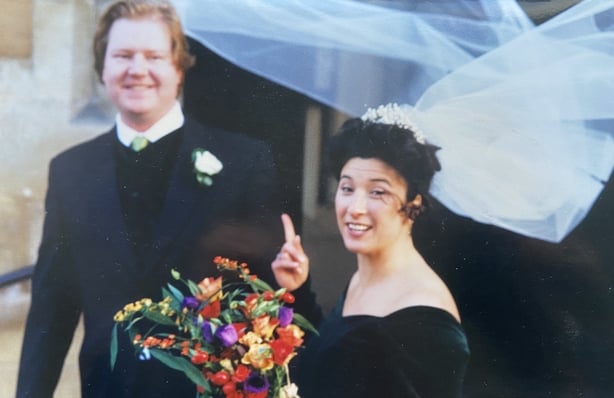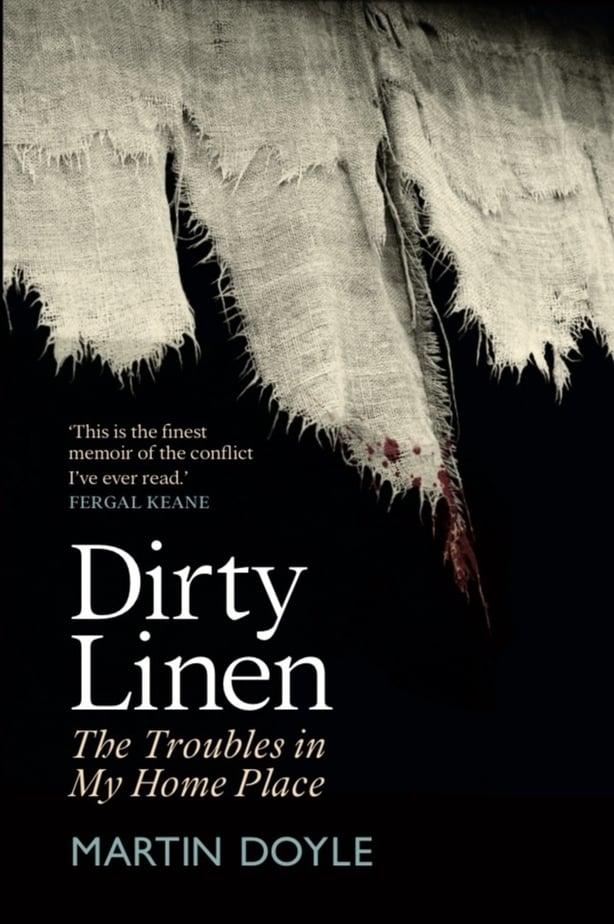Author and Irish Times Literary Editor Martin Doyle introduces his new book Dirty Linen, a personal, intimate history of the Troubles seen through the microcosm of a single rural parish - his own.
Growing up in rural Co Down during the Troubles, I turned to books to understand the history and politics behind the sectarianism and violence. I never thought I would add to their number until I was asked to contribute to an anthology about being working class.
Looking with fresh eyes at the parish where I grew up on the banks of the Bann in Co Down, I began pulling on a thread which led me from a derelict linen mill to an abandoned farmhouse, where a neighbour walked me through the rooms where two brothers and an uncle had been murdered while he was at Mass. He became my ferryman, transporting me to the Troubles underworld, helping me join the dots, the black spots where more than 20 people died violently in my parish.
I share the stories side by side of the victims of republican and loyalist violence.
I would like to invite you to read the stories of my old neighbours such as Eamon, who was born on Remembrance Day and wants to know why we dwell on the dead of the First World War while his two young sons, murdered just after his daughter's 11th birthday party, are forgotten.
Publishing your first book should be, and is, cause for celebration. However, my pride is tempered by a sobering regret. These are tragic stories, whose telling deeply moved me. But I also felt privileged to be in the presence of people whose resilience and undying love restored my faith in humanity.

Dirty Linen is personal for me too on another level. My wife Nikki’s death from cancer in 2013 sensitised me to others’ grief. She had suffered tragic loss in her own life but lived life to the full with a sense of fun and joy that was infectious. I subconsciously sought and found such inspirational resilience, the best of humanity, among the survivors I spoke to. Their stories sometimes broke my heart but their spirit mended it too.
The Rosary is divided into five decades, and they seemed to last five decades when I was a child and time warped like Dalí’s clocks as Granda led the prayers. More than five sorrowful decades have passed since violent death descended on Tullylish. As surely as time stopped dead for its victims, it was arrested and distorted, too, for their loved ones. Some, understandably, do not want to dwell on the moment of their loss publicly, perhaps even privately. Others, equally understandably, live their whole lives in the shadow of a dark hour and want others to remember too.
These are tragic stories, whose telling deeply moved me. But I also felt privileged to be in the presence of people whose resilience and undying love restored my faith in humanity.
Bereavement comes with a whole-life tariff, grief without any promise of reprieve or release. I find I have become an inveterate collector of words of wisdom about grief and loss. 'How can the dead be truly dead when they still live in the souls of those who are left behind?’ asks Carson McCullers rhetorically in The Heart Is a Lonely Hunter. ‘Unable are the Loved to die/ For Love is Immortality,’ writes Emily Dickinson. ‘This is what memory is: an abiding awareness that some things have vanished,’ Mick Herron explains. ‘And this is what consciousness is: the knowledge that more absences will come.’ Wallace Stevens wrote of the ‘nothing that is not there and the nothing that is’.
The past is never dead, wrote William Faulkner, it is not even past. The British government just passed a Bill which shields its army veterans from prosecution, even as a former chief constable finalises major investigations into collusion between paramilitaries and agents of the state. Sinn Féin looks set for government on both sides of the Border, its leaders still adamant that the IRA’s campaign was necessary and inevitable.
By focusing on a small community, John Healy’s No One Shouted Stop! captured the devastation of emigration and Donal Ryan’s The Spinning Heart the human cost of the Celtic Tiger’s collapse. Dirty Linen seeks to do the same for the Troubles.

Dirty Linen is published by Merrion Press

